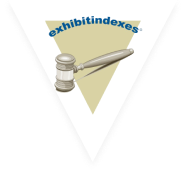30th Jun 2022
Planning and Organization: Your Estate Planning Document Checklist
According to some research, 68% of people don't have a will. If you don't have a will or any estate planning, then you can't have any control over who gets your assets.
If you are part of the percentage that doesn't have an estate planning document, we're here to help you out.
Keep reading to discover the only estate planning checklist you'll need to ensure that you're prepared.
Make a Last Will and Testament
The most obvious document you'll need for your estate planning is your last will and testament. This will determine who gets your assets when you pass. You'll also use it to sign someone as the executor of the will.
You can also list your guardians for any minor children, your beneficiaries, or any other important information. You can also determine certain requirements for your assets.
This could be real estate, possessions, money, or anything else that you want to leave to a beneficiary. You'll also lay out how you want people to pay off any debts that you have. This will help relieve any problems that your loved ones could have to deal with.
Keep in mind that when you create your will, you'll have to base it on state laws. This will clearly state how you leave your assets so that there aren't any legal issues after you pass.
While you could create your own will, it's best if you partner with an estate planning attorney or lawyer who deals in wills.
Take Inventory
You'll also want to take inventory of all of your property and assets. Start with a list of the property and figure out who you want to give it to. If you want to give it to multiple people, then say how you're going to split it up.
You'll need to think about assets, like your vehicles, property, homes, clothing, jewelry, accessories, brokerage accounts, retirement accounts, stocks, bank accounts, or brokerage accounts.
Find an Estate Planning Attorney
To help you with all of this, it's best if you have an estate planning attorney on your side. They'll know all of the legal requirements to ensure that all of your wishes are carried out when you pass without any government interference.
They will know that your estate plan will include a power of attorney, a living will, designation of health care, pre-need for guardian designation, and other factors.
While there are templates that you can find online, the laws are different in each state, so make sure that even if you use a template, you have an attorney look it over.
Create a Living Trust
A living trust is a legal document that will let you distribute your assets when you die. This is a legal paper that owns the property you put in it while you still allow for control of the property while you're alive.
This will require a lot more maintenance than a will, but you'll be able to avoid expenses and time that come with probate. When you pass, your assets in the living trust will be distributed to your heirs privately and quickly.
If you want to create a living trust, you need to create, sign, and notarize a trust document. You'll have to name a successor trustee, who will be responsible for managing the trust when you pass away.
If you sign the document, you'll transfer the property to the trust. You can make the living trust so that you can still have power over it while you're still alive.
Get Power of Attorney
Power of attorney is another document that you'll need to use when you are managing your affairs. There are two main types of power of attorney: medical and financial.
The person that you appoint can act on your behalf if you're not capable of managing it. You can have a non-durable power of attorney, springing power of attorney, or an immediate and durable power of attorney.
A non-durable power of attorney is effective as soon as possible, and it'll last until you're incapable of making decisions. Springing power of attorney is effective only if you're declared incapacitated. On the other hand, the immediate power of attorney is effective as soon as possible and is effective even after you're incapacitated.
If your power of attorney isn't active immediately, you can have your agent or attorney act even if you're not incapacitated.
If you get a financial power of attorney, you're authorizing someone you trust to act on behalf of your financial affairs. This is available in many states.
A health care power of attorney will designate someone you trust to make decisions if you're mentally unwell. However, you should discuss your desires with the person you appoint.
Gather Digital Assets
While you gather your assets, don't forget about your digital ones. We all have an online footprint, and you'll also want to consider apps like Facebook, Twitter, or Instagram.
You'll also want to consider Venmo, Cash App, and PayPal. Include these in your estate planning so that you can have someone manage these digital assets for you. If you don't, the social media app might take control away from your loved ones.
Discover More Items to Add to Your Estate Planning Document
These are only a few items that are in your estate planning document, but there are many other factors to consider.
We know that these are only a few things to add, but the case is different for everyone. If you're ready to get started, you can find online templates today.
Check out this website to start creating your last will and testament.




